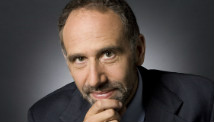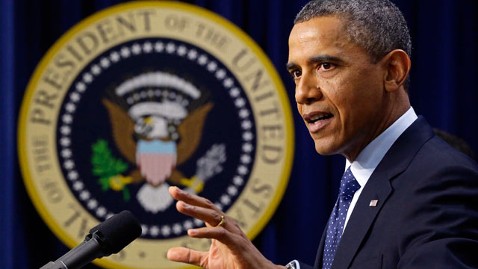Tourists walk around the Shwedagon Pagoda in Yangon in April. The tourism industry is set for expansion.
STORY HIGHLIGHTS
- Myanmar is undergoing incremental change, welcomed by all, says Parag Khanna
- But he says people still tread lightly, careful not to overstep or demand too much
- Myanmar has survived succession of natural and man-made ravages, Khanna adds
- With sanctions lifted, foreign investment is now pouring in from Western nations
Editor's note: Parag Khanna is a Senior Research Fellow at the New America Foundation and Senior Fellow at the Singapore Institute of International Affairs. His books include "The Second World," "How to Run the World," and "Hybrid Reality."
Yangon, Myanmar (CNN) -- Call it a case for evolution instead of revolution. While the Arab world continues in the throes of violence and uncertainty, Myanmar is undergoing incremental change -- and almost everyone seems to want it that way.
The government is lightening up: holding elections, freeing political prisoners, abolishing censorship, legalizing protests, opening to investment and tourists and welcoming back exiles. But the people still tread lightly, careful not to overstep or demand too much. Still, the consensus is clear: Change in Myanmar is "irreversible."
Read more: Aung San Suu Kyi and the power of unity
As the British Raj's jungle frontier, Burma was a key Asian battleground resisting the Japanese occupation of Southeast Asia during World War II. As with many post-colonial countries, the euphoria of independence and democracy in 1948 gave way in just over a decade to the 1962 coup in which General Ne Win nationalized the economy and abolished most institutions except the army.

Parag Khanna
Non-alignment gave way to isolationism. Like Syria or Uzbekistan, Myanmar became an ancient Silk Road passageway that almost voluntarily choked itself off, choosing the unique path of a Buddhist state conducting genocide, slavery, and human trafficking.
Watch: Myanmar in grip of economic revolution
The military junta began its increasingly cozy rapproachment with Deng Xiaoping's China in the 1970s, just as China was opening to the world, and used cash from its Golden Triangle drug-running operations to pay for Chinese weapons.
Mass protests, crackdowns and another coup in 1988 led to a rebranding of the junta as the State Law and Order Restoration Council (SLORC) and the country's official renaming as the Union of Myanmar.
Terrorized, starving and homeless: Myanmar's Rohingya still forgotten
The 1990 elections, in which Aung San Suu Kyi's National League for Democracy (NLD) won a majority of the seats, were annulled by the SLORC, which continued to rule until 2011 when it was formally disbanded. Most international sanctions on Myanmar have now been lifted.
Read more: Myanmar: Is now a good time to go?
In just the past few years, Myanmar has survived a succession of natural and man-made ravages, from the brutal crackdown on the Saffron Revolution of 2007 (led by Buddhist monks but more widely supported in protest against rising fuel prices and economic mismanagement), to Cyclone Nargis (which killed an estimated 200,000 people in 2008) to civil wars between the government's army and ethnic groups such as the Kachin in the north and Shan and Karen in the east, and communal violence between the Muslim Rohingya (ethnic Bengalis) and Buddhist Rakhine in the west.
There are still approximately 150,000 Karen refugees in Thailand (and over 300,000 total refugees on the Thai-Burmese border) and more than 100,000 displaced Rohinya living in camps in Sittwe. So difficult is holding Myanmar together that even Aung San Suu Kyi, who helps lead the national reconciliation process, ironically advocated the use of the army (which kept her under house arrest for almost two decades) to pacify the rebellions.
Though sectarian conflict between Muslims and Buddhists in Rakhine underscores the Myanmar's tenuous search for national unity, the genuine efforts at religious pluralism are reminiscent of neighboring India: Every religion is officially recognized, and days are given off for observance. Surrounding Yangon's downtown City Hall is not only the giant Sule Pagoda but also a mosque, synagogue, church and Jain temple. The roundabout is therefore a symbol of the country's diversity -- but also the place where protesters flock when the government doesn't live up to promises.
Q&A: What's behind sectarian violence in Myanmar?
Scarred from decades of oppressive and ideological rule and still beset by conflict, it is therefore against all odds that Myanmar would become the most talked about frontier market of the moment, a top Christmas holiday destination and a case study in democratic transitions. Myanmar's political scene is now a vibrant but cacophonous discourse involving the still-powerful army; upstart parliament; repatriated civilian advisers; flourishing civil society, including human rights groups, ambitious business community, the Buddhist religious community, and a feisty media (especially online).
The parliament is pushing for accountability in telecom and energy contracts, and its speaker, Shwe Mann, is already maneuvering to challenge the chairman of his Union Solidarity and Development Party (USDP) -- current president Thein Sein -- in the 2015 elections.
In the meantime, however, the establishment in Yangon and the new capital of Napyidaw need to focus much more on building capacity. Thein Sein, who traded in his uniform for indigenous attire in 2011, has reshuffled the Cabinet to make room for functional experts in the energy and economic portfolios. He's even spearheaded an anti-corruption drive, admitting recently that Myanmar's "governance falls well below international standards." By many accounts he is also very open to advice on investment and other reforms.
He will need it, as Myanmar faces crucial tests of its international credibility in the coming years. In 2013, Myanmar will play host to the World Economic Forum (WEF) as well as the Southeast Asian Games. In 2014 it will chair the ASEAN regional group, and in 2015 it is expected to enter a new ASEAN Free Trade Area.
The military's power is still pervasive, placing it somewhere on the spectrum between Indonesia, where military influence has been rolled back, and Pakistan, where the military still dominates. On the streets, it's often difficult to know who is in charge.
One numerological fetish led to the driving side being unilaterally changed, making Myanmar the rare place where the steering wheel is (mostly) on the right, and cars drive (mostly) on the right. At least a dozen official and private newspapers (though private daily papers are not allowed yet) are on offer from meandering street hawkers, while you inch through Yangon's increasingly dense daily traffic jams.
At this time of year, visitors to Burma enjoy crisp, smoky morning air and dry, starry nights. Yangon is undergoing a construction boom, with faded colonial embassies turned into bustling banks, the national independence column being refurbished and redesigned with a park, and tycoons building columned mansions near downtown -- and seeking Buddhist blessings by pledging lavish donations for the construction of even more monasteries and pagodas.
By 2020, the population of Yangon could easily double from the current 5 million, at which point it may look like a mix of Calcutta and Kuala Lumpur.
Thant Myint-U, the grandson of former U.N. Secretary-General U Thant and noted historian of modern Burma, now wears several hats related to ethnic reconciliation, foreign donor trust funds and urban conservation. He says that as foreign aid flows grow from trickles into a flood, they have to be systematically focused on sustainable employment creation and infrastructure. USAID has pledged to spend more than $150 million in Myanmar in the next three years.
Myanmar's opening, however, is strongly motivated by an anti-Chinese sentiment that is part of a much wider global blowback against China's commercial and strategic encroachment
Parag Khanna
Outside of Yangon, the pace of Burmese society slows to a timeless pace -- as do Internet connections. On village roads, cycle rickshaws and monks with parasols amble by fruit vendors and car part stalls. Whether at the Dhammayazika Pagoda in Bagan or Mandalay Hill in that city, locals enjoy watching sunrises and sunsets as much as tourists.
Traveling around Myanmar, one observes the paradox of a country that has massive potential yet still needs just about everything. Yangon's vegetable market is a maze of tented alleys overflowing with cabbage, pineapples, eggplant and flowers, but they are still transported by wheelbarrows and bicycles. Ox-drawn ploughs still power farming in much of the country, meaning agricultural output of rice, beans and other staples could grow immensely through mechanization.
Similarly, the British-era light-rail loop circling Yangon takes about three hours to ride once around, with no linking bus services into downtown. But with cars already clogging the city, a major transport overhaul is essential. The communications sector actually needs to be re-invented. At present, the country's Internet and mobile phone penetration are only just growing; both are still governed by India's 1886 Telegraph Act. Mobile penetration is only 3 million but could easily grow to 30 million (half the population) within the next couple of years, as the price of SIM cards come down (so far from $2,000 to about $200), and foreign telecoms are allowed in to provide data coverage.
With sanctions lifted, foreign investment is now pouring in from Western nations, in addition to the players who have been making inroads for years such as China, Thailand and Singapore. The paradox, however, is that Myanmar lacks the infrastructure (physical and institutional) to absorb all the investor interest.
Major nations have thus focused on special economic zones that they themselves effectively run. The way Japan has moved into Myanmar, one would think that its World War II imperialism has been forgotten. After their major bet on the Thilawa special economic zone south of Yangon, Japanese contractors have plans to deepen the Yangon River's estuary so that cargo ships can sail directly up to the city's shores and offload more containers of cars that are already being briskly snapped up at busy dealerships.
Besides natural gas and agriculture, everyone agrees that tourism will comprise an ever-larger share of the country's GDP. Especially with much of the country off-limits to foreigners due to security restrictions and the military's economic operations, tourists already clog all existing suitable hotels in Yangon, Bagan and Mandalay, meaning a massive upgrade is needed in the hospitality sector.
Annual tourist visits are climbing 25% annually to an estimated 400,000 for 2012. Daily flights arrive packed from around the region, with longer-haul routes beginning from as far afield as Istanbul and Doha.
Still, Myanmar is a traveler's dream come true. In Bagan, you can walk or take a sunrise jog around countless pagodas that feel like they haven't been touched in 800 years -- some actually haven't. There is also the sacred and enchanting Golden Rock; the pristine beaches of Ngwe Saung, which rival the best of Thailand and the Philippines; the temperate climate of Inle Lake; the Himalayan foothills near Putao in far northern Kachin state where one can trek; the rich dynastic history of Mandalay; and the languorous Irrawaddy River cruises that harken to George Orwell's "Burmese Days."
Yangon has a pleasant charm and gentle energy, with vast gardens and riverside walks, the grandeur of centuries-old monuments such as the Shwedegon Pagoda, a fast-growing cultural scene of art galleries and music performances, and a melting pot population of all Myanmar's tribes as well as industrious overseas Indians and Chinese, who make up 5% of the nation's population.
Mandalay in particular is where one feels the depth of China's demographic penetration into Myanmar, owing not only to recent decades of commercial expansion from gems trading to real estate but also centuries of seasonal migrations across the rugged natural border with Yunnan province. Some have begun to call the Shan region "Yunnan South."
The combination of the Saffron Revolution, civil strife, sanctions, its economic lag behind the rest of ASEAN, and the status of becoming a captive resource supplier to China all played crucial roles in Myanmar's opening. China has traditionally been a kingmaker in isolated and sanctioned countries and well-placed to capitalize on the infrastructural and extractive needs of emerging economies as well.
For China, Myanmar represents a crucial artery to evade the "Malacca trap" represented by its dependence on shipping transit through the Straits of Malacca. In 2011 China was still far and away the largest foreign investor in Myanmar, bringing in $5 billion (of a total of $9 billion) across their 2,000-kilometer (1250-mile)-long border. The massive ongoing investments include 63 hydropower projects, a 2,400-kilometer (1500-mile) Sittwe-to-Kunming oil pipeline from the Bay of Bengal and a proposed gas pipeline to China's Yunnan beginning at Myanmar's Ramree Island -- not to mention an entire military outfitted with Chinese tanks, helicopters, boats and planes.
Myanmar's opening, however, is strongly motivated by an anti-Chinese sentiment that is part of a much wider global blowback against its commercial and strategic encroachment. Even well-kept generals are fundamentally Burmese nationalists and awoke to the predicament of total economic and strategic dependence on China. The government has taken major steps to correct this excessive tilt, suspending a major hydroelectric dam project at Myitsone and re-evaluating Wanbao Mining company's giant copper mine concession near Monywa.
Myanmar is now deftly playing the same multi-alignment game mastered by countries such as Kazakhstan in trying to escape the Soviet-Russian sphere of influence: courting all sides and gaining whatever one can from multiple great powers and neighbors while giving up as little autonomy as possible.
India sees Myanmar as the crucial gateway for its "Look East" policy and is offering substantial investments in oil and gas as well as port construction and information technology; Europe has become a larger investor, especially Great Britain; Russia is being courted as a new arms supplier; Japan is viewing Myanmar as its new Thailand for automobile production; and of course, U.S. President Barack Obama visited in December, paving the way not only for greater U.S. investment but even for Myanmar to potentially participate in the Cobra Gold military exercises held annually with America's regional allies.
Obama was not only the first U.S. president to visit Myanmar but also the first to call it by that name, conceding ground in a long-running dispute. The administration hopes that North Korea, Asia's still frozen outcast, will learn the lessons from Myanmar's steady but determined opening.
But countries that are playing multi-alignment don't have to thaw domestically -- witness Saudi Arabia and Kazakhstan. Myanmar is simultaneously undergoing political liberalization and international rehabilitation -- a tricky and laudable feat for sure but not one North Korea is likely to emulate entirely. What the two do have in common, however, is the growing realization that having China as a neighbor is both a blessing and a curse.
During my visit to the "Genius Language School," where university students go for professional English tutoring, I asked the assembled round table whether they were happy that Obama came to visit and whether they considered America a friend. All giggled and chanted: "Yes."
Then I asked, "Are you afraid of China?" And the answer came in immediate, resounding unison: "Yes!"
Follow @CNNOpinion on Twitter
Join us at Facebook/CNNOpinion
The opinions expressed in this commentary are solely those of Parag Khanna.












